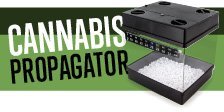Disclaimer
Zativo caters to private customers only, and does not supply commercial or industrial growers with large amounts of cannabis seeds. If we have reason to suspect that the ordered seeds are destined for growing cannabis on a larger-than-private scale, we reserve the right to dismiss that specific order.
Legal Status of Medical Marijuana
Under the UN treaty of the Single Convention on Narcotic Drugs cannabis falls into Schedule IV, making it subject to special restrictions. According to the treaty:
“A Party shall, if in its opinion the prevailing conditions in its country render it the most appropriate means of protecting the public health and welfare, prohibit the production, manufacture, export and import of, trade in, possession or use of any such drug except for amounts which may be necessary for medical and scientific research only, including clinical trials therewith to be conducted under or subject to the direct supervision and control of the Party. “
What this basically means is that possession, production and distribution of cannabis is illegal unless it is for government approved research or medical use. It is down to the discretion of each country to choose whether they wish to legalize its use for medical purposes.
Many countries, including those not in the UN, have decided to maintain the illegal status of cannabis for medical purposes. However, there are a few countries out there that allow for the use of cannabis, or a man made derivative, for the treatment of medical conditions.
Austria:
In 2008, the Austrian Parliament legalized the cultivation and distribution of cannabis for research and medical use. It is regulated and controlled by the Austrian Agency for Health and Food Safety.
Canada:
Since 2000, doctors in Canada have been able to legally prescribe cannabis to a patient if they feel that the patient falls into one of two categories. Category one covers any symptom that can be treated by cannabis within the bounds of providing compassionate care for the terminally ill. This basically means anyone who is suffering towards the end of their life can be prescribed cannabis to help ease the patient. Category two covers symptoms of any illness that debilitate the patient and are not associated with category one.
Medical patients may also be assigned a license by Health Canada to produce cannabis themselves. It can only be an amount for personal consumption and it is illegal for anyone else other than the prescribed patient to use.
There are four major types of medical cannabis in Canada. These are Sativex, a THC and cannabidol spray; a synthetic version of THC called nabilone; another synthetic called dronabinol and of course, marijuana.
Czech Republic:
Since April 2013, the medical use of cannabis has been legal in the Czech Republic for the prescribed treatment of cancer, MS, psoriasis and Parkinson's disease.
France:
In 2008, France legalized the use of cannabis derivatives for prescribed treatment where all other methods of treatment have failed. The actual use of marijuana is still illegal.
Germany:
In 2008 it was ruled that seven patients could legally obtain medical marijuana through pharmacies. To this day, only a total of forty patients or so have access to its use. It is very rare for a prescription for medical marijuana to be prescribed in Germany, with thousands who could still benefit from its use. German lawmakers are currently looking into the benefits and reassessing law, it may not belong before medical cannabis is more widely accepted.
Israel:
The use of medical cannabis has been legal in Israel since the early 1990's. It can be prescribed for the treatment of cancer, MS, Parkinson's disease or any other chronic pain related ailment. Patients in Israel can smoke it, ingest it in liquid form or use it as a skin balm.
Netherlands:
It has been legal to prescribe medical cannabis in the Netherlands since 2003 for the treatments of symptoms that would be lessened by its use.
Spain:
There are various regions of Spain that have voted for the legalization of medical cannabis. It is however, illegal to sell. This has resulted in “cannabis clubs” being made that privately grow and sell to their own members. Whilst this is technically illegal, it is now looked at with a decriminalized view.
United Kingdom:
The possession, production and sale of cannabis is any form is technically illegal. Certain cannaboids are permitted for medical use, but they are heavily controlled. The use of cannabis for medical reasons can be a mitigating circumstance if taken to court for possession.
United States:
Cannabis is outlawed in the USA at a federal level. However, some states have legalized its use for medical use, effectively decriminalizing it in those states. A few states have even gone as far to allow for dispensaries to be set up. The following US states allow for the use of medical cannabis by prescribed patents, a patient must prove that they are a resident of said state in order to be eligible:
- Alaska
- Arizona
- California
- Colorado
- Connecticut
- District of Columbia
- Delaware
- Hawaii
- Maine
- Massachusetts
- Montana
- Nevada
- New Jersey
- New Mexico
- Oregon
- Rhode Island
- Vermont
- Washington
As you can see, there are quite a few countries out there that will allow patients to be prescribed with marijuana to alleviate an array of symptoms. Some of these countries have only just accepted and legalized its use, and more and more countries are looking into its use and the real scientific facts behind it. Hopefully it will not be long before we see a much more widespread acceptance of cannabis, both for medical users and generally as a whole. In the meantime, don't forget to support (local) legalize marijuana organizations!




